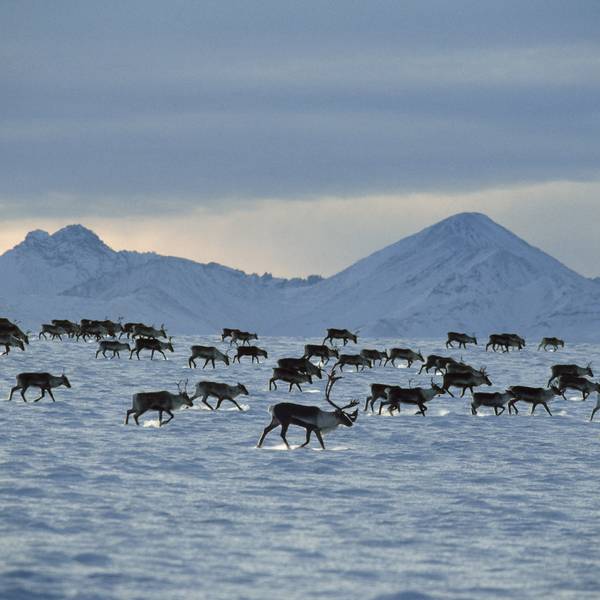After the very public failure of a number of Arctic drilling attempts last year, Big Oil companies are lobbying the government of Canada to extend their drilling licenses and relinquish hundreds of millions in security deposits, reporting on Monday revealed.
The National Observer's Mike De Souza reports that the Trudeau administration is proceeding with a review of Canada's Petroleum Resources Act, which "internal federal briefing notes show" was initiated by the government of former Prime Minister Stephen Harper--a notorious "climate villain"--at the behest of oil industry lobbyists.
According to De Souza, as the law currently stands, companies including "Imperial Oil, Exxon Mobil Corp., BP Plc., and Chevron Corp. would be forced in the coming years to walk away from their proposed projects since they have not been able to convince federal authorities that they can drill for oil in the Arctic--before their licenses expire--without causing an environmental disaster."
Not only do those oil giants want an extension on their contracts, they are seeking repayment on the collective $500 million in security deposits to obtain those licenses--after they give Arctic drilling another shot.
"The changes to the law proposed by the oil industry lobbyists would allow them to extend exploration licenses beyond a maximum nine-year term so that they can pursue their projects without paying any new security deposits," De Souza reports. "At the same time, an extension of the licenses could allow companies to get refunds on the hundreds of millions of dollars that they already paid to the government, once they begin to drill for oil."
Further, the closed-door review is being conducted by Alberta-based attorney and former member of the National Energy Board Rowland Harrison, who was initially tapped by the Harper administration.
The fact that the entire process has been "a direct outcome of industry lobbying" raises "a lot of concerns that the review was slanted from the beginning," said Alex Speers-Roesch, Arctic campaigner for Greenpeace Canada, which obtained the internal federal correspondence through an access to information request.
Greenpeace Canada told National Observer that the changes sought by the oil industry amount to another fossil fuel subsidy, which Trudeau had promised to phase out during last year's campaign, and are incompatible with the government's climate goals.
Harrison has been meeting with Indigenous groups, industry representatives, environmentalist, and other stakeholders and is expected to deliver his recommendation on the law change by May 31.




